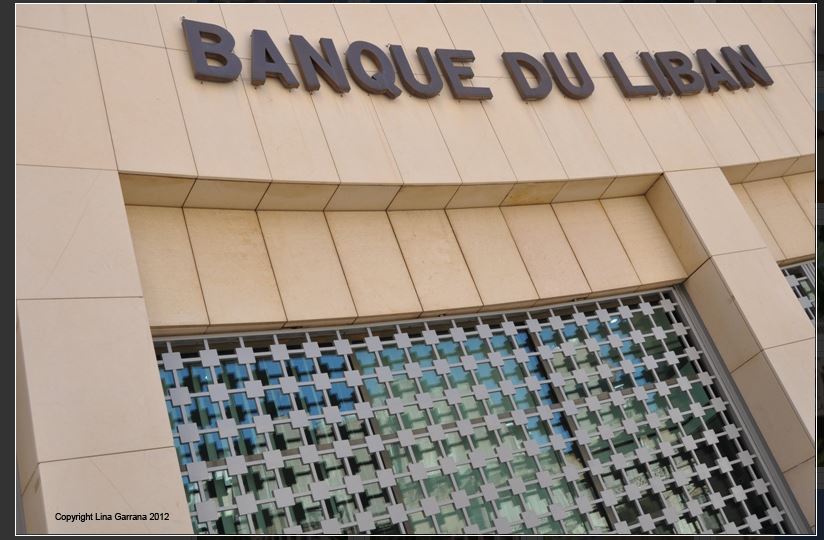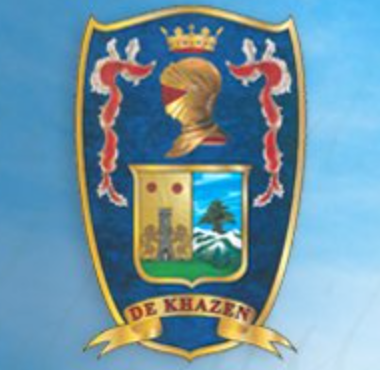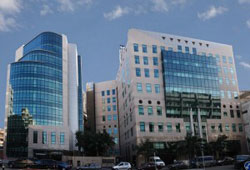BEIRUT/LONDON/MOSCOW (Reuters) - The company that bought the ammonium nitrate which exploded in Beirut last August had possible links to two Syrian businessmen under U.S. sanctions for ties to President Bashar al-Assad, according to a report by a Lebanese journalist and London company filings. Savaro Ltd, the trading firm which procured the chemicals in 2013, shared a London address with companies linked to George Haswani and Imad Khoury, according to the report by documentary film-maker Firas Hatoum, which aired on Lebanon's al-Jadeed TV station this week. Haswani, Khoury and his brother Mudalal Khoury have all been sanctioned by Washington for supporting Assad's war effort. All three are joint Syrian-Russian nationals, according to the U.S. sanctions list and a database that gathers data from official Russian institutions. The U.S. Treasury accused Mudalal Khoury in 2015 of "an attempted procurement of ammonium nitrate in late 2013". It sanctioned his brother Imad a year later for engaging in business activities with Mudalal. Haswani was sanctioned in 2015 on charges of helping Assad's government to buy oil from Islamic State militants, which he has denied.
In reviewing filings with Companies House, the UK's companies registry, Reuters found that Savaro and Hesco Engineering and Construction Company Ltd, a firm subject to U.S. sanctions for its links to Haswani, both moved their corporate registers -- official company records -- to the same London address on June 25, 2011. That address was also the registered office for IK Petroleum Industrial Company Ltd, in which Imad Khoury was a director, the filings show. Dozens of companies can share listed addresses and such links do not necessarily prove company owners are connected. But it is rare for firms to move their registers, particularly to the same address on the same day, according to a Reuters review of filings by hundreds of companies.

By George Eid and Andrew Rosenbaum -- cyprus-mail -- Lebanese banks in Cyprus, like all Lebanese banks, are facing intense pressure from the Lebanon central bank (Banque du Liban) to raise capital. At the same time, most Lebanese banks are owed large sums by the country’s government. As a result, the Central Bank of Cyprus (CBC) has asked branches of Lebanese banks here in Cyprus to guarantee deposits to 100 per cent. Given that the total sum of deposits in Cyprus branches of Lebanese banks is about €200 million – a fraction of the total of near €100 billion in deposits in Cyprus banks – there is little danger for systemic consequences for the Cyprus banking system. Total deposits in all Lebanese banks declined by $31 billion since early 2019, the largest drop in their history.
Some Lebanese banks “still have the muscles” to maintain their presence on the island and elsewhere, one banker explains. “It is a case-by-case situation when it comes to Lebanese banks.” It’s not the first time this has happened. Back in March, after Lebanon defaulted on its public debt, the CBC asked the nine Lebanese bank branches in Cyprus to increase deposit guarantees. Given the upheaval in Lebanon at present, and the demand by the Banque du Liban for a major increase in reserve capital at all banks in the country, it is not by any means a surprising demand, banking industry experts say. The real pressure on Lebanese banks comes from the Banque du Liban which is demanding that all Lebanese banks increase their capital by 20 per cent and to have 3 per cent in foreign currency reserves outside the country as a further guarantee, explains Lebanese Economist Nassib Ghobril. Banks that are unable to raise capital by 20 percent, risk having to exit the market.

This site is dedicated to the Christian Maronite el Khazen family in Lebanon. Its recorded history in Mount Lebanon dates back to the sixteenth century. For over three centuries, the el Khazen family had been involved in Mount Lebanon’s politics under Ottoman rule as well as with the Maronite church and the Roman Catholic church.
Members of the el Khazen family ruled large districts in Mount Lebanon, notably during the Ma’ni and shihabi Imarah, and maintained close ties with Amir Fakhreddin II (1572-1635). The most notable figures during that period were Sheikh Abou Nader el Khazen and his son sheikh Abou Nawfal, who was also Consul of France in Beirut in 1655 and, after his death, members of his immediate family for nearly a century, and Consul of Venice in 1675.

Beirut (AFP) Lebanon hit new daily records of 44 coronavirus deaths and over 6,000 new infections Friday, the second day of a lockdown aimed at preventing the country's creaking healthcare system from collapsing. The country of six million recorded 6,154 new infections over the past 24 hours, the health ministry said, as hospitals in Beirut reached full capacity. The announcement came as the American University of Beirut's medical centre, one the country's top facilities, said that its intensive care units, COVID-19 units and emergency room were all full. "We are unable to find beds for even the most critical patients," it said in a statement.
The World Health Organisation says that occupancy rates for ICU beds across the country has reached 90.4 per cent, up from 81 per cent on December 22. Occupancy rates for regular beds has shot up from 72.5 percent to 86.3 percent over the same period, it added. Recent days have seen cases surge in one of the steepest increases in transmission worldwide. Lebanon has recorded 243,286 coronavirus cases and 1,825 deaths since its outbreak started in February. Infections skyrocketed after authorities loosened restrictions during the holiday season, allowing restaurants and nightclubs to remain open until 3:00 am, despite warnings from health professionals.
Khazen History


Historical Feature:
Churches and Monasteries of the Khazen family

St. Anthony of Padua Church in Ballouneh
Mar Abda Church in Bakaatit Kanaan
Saint Michael Church in Bkaatouta
Saint Therese Church in Qolayaat
Saint Simeon Stylites (مار سمعان العامودي) Church In Ajaltoun
Virgin Mary Church (سيدة المعونات) in Sheilé
Assumption of Mary Church in Ballouneh
1 - The sword of the Maronite Prince
2 - LES KHAZEN CONSULS DE FRANCE
3 - LES MARONITES & LES KHAZEN
4 - LES MAAN & LES KHAZEN
5 - ORIGINE DE LA FAMILLE
Population Movements to Keserwan - The Khazens and The Maans
ما جاء عن الثورة في المقاطعة الكسروانية
ثورة أهالي كسروان على المشايخ الخوازنة وأسبابها
Origins of the "Prince of Maronite" Title
Growing diversity: the Khazin sheiks and the clergy in the first decades of the 18th century
Historical Members:
Barbar Beik El Khazen [English]
Patriach Toubia Kaiss El Khazen(Biography & Life Part1 Part2) (Arabic)
Patriach Youssef Dargham El Khazen (Cont'd)
Cheikh Bishara Jafal El Khazen
Patriarch Youssef Raji El Khazen
The Martyrs Cheikh Philippe & Cheikh Farid El Khazen
Cheikh Nawfal El Khazen (Consul De France)
Cheikh Hossun El Khazen (Consul De France)
Cheikh Abou-Nawfal El Khazen (Consul De France)
Cheikh Francis Abee Nader & his son Yousef
Cheikh Abou-Kanso El Khazen (Consul De France)
Cheikh Abou Nader El Khazen
Cheikh Chafic El Khazen
Cheikh Keserwan El Khazen
Cheikh Serhal El Khazen [English]
Cheikh Rafiq El Khazen [English]
Cheikh Hanna El Khazen
Cheikha Arzi El Khazen
Marie El Khazen
